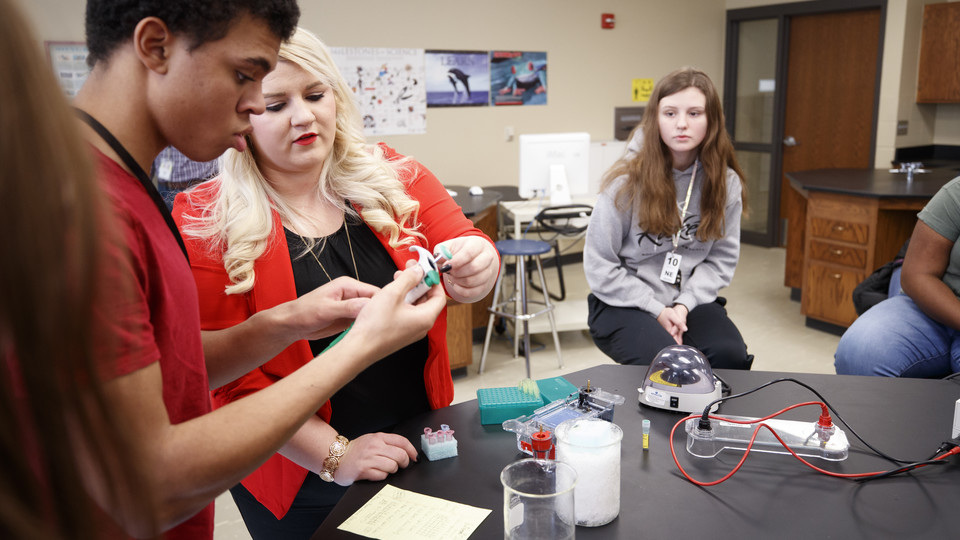Experiential learning enables students to apply knowledge and skills learned in classrooms into real-world problem-solving contexts. It promotes life-long, self-directed, deep, and integrated learning. All undergraduate students are required to complete at least one experiential learning experience as part of their degree requirements. All CEHS majors have at least one experiential learning experience built into the degree program.
CEHS provides students with a variety of experiential learning opportunities throughout their college years that enable them to reflect intentionally on and actively experiment their learning in real-world contexts, which helps students meaningfully connect college education to their career and life goals. In CEHS, high-quality experiential learning opportunities are provided in the following forms.
Case-Based Learning
Students apply their knowledge to real-world scenarios; engage in guided inquiry that promotes higher levels of cognition; students work individually or in groups on case studies that represent disciplinary issues/problems; students devise solutions under the guidance of instructor and form new understanding.
Creative Activity
Students apply their knowledge and skills to design and create a product; engage in a creative process individually or in groups to develop a product that reflects and/or addresses design problems/issues; showcase their designs and/or products and receive and address feedback under the guidance of instructor to enhance designs and/or products.
Education Abroad
Students are immersed into a culture that is distinct from their own; reflect on their experiences; apply culturally responsive and relevant knowledge and skills in interacting with the people in that culture under the guidance of instructor.
Internship
Students engage in discipline-specific work and learning experiences that support the integration of knowledge and skills learned from their coursework with practical application in a professional setting under the guidance of instructor and on-site supervisor.
Practicum and Student Teaching
Students engage in in-person teaching experiences with children/students in community placements or school settings. Students receive and address regular, cumulative feedback from instructors, on-site cooperating teachers, and supervisors that enable them to hone and modify their skills over time.
Research
Students identify research questions and experience the research process under the guidance of instructor; generate discipline-based research questions; develop methods appropriate to answer the questions; collect, manage, and analyze data; and/or disseminate the findings and implications.
